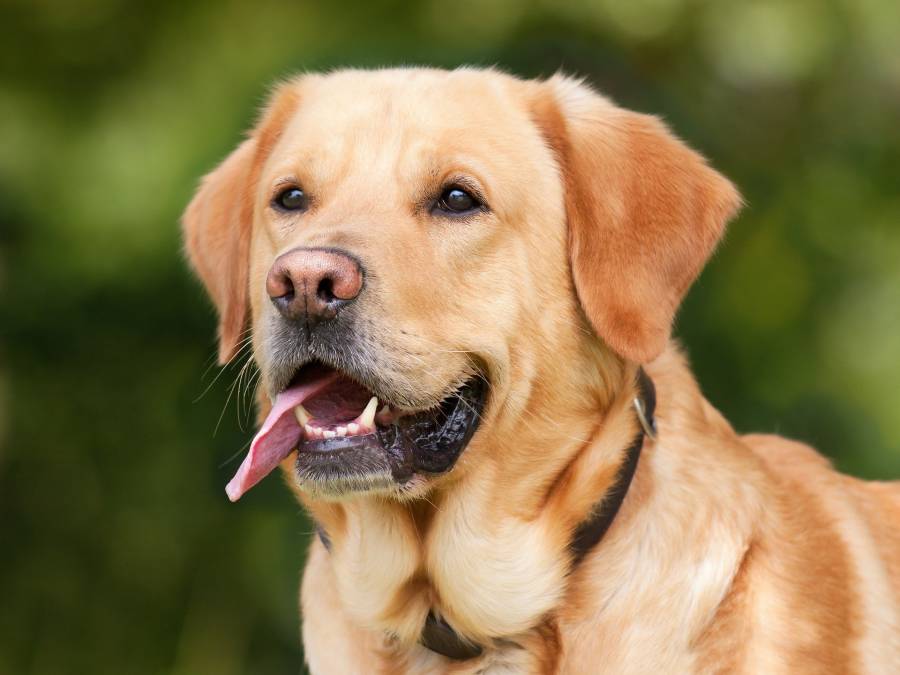Quick Navigation
Imagine a topical medicine with Lidocaine (one of the main ingredients) lying around, and your dog is nearby.
You left it open, and your pet started sniffing it!
Out of curiosity, your dog may lick the medicine.
It may sound okay, but it’s not an ideal scenario for your dog.

Your vet can guide you best about medications like Lidocaine.
But let’s find out today what happens if your dog consumes Lidocaine!
Is Lidocaine Toxic to Dogs?
Lidocaine can be toxic to dogs, but it depends on the quantity consumed and your pet’s age, weight, and overall health.
This medicine is originally for humans but also helps treat pets when used properly.
Your dog may need Lidocaine for dental procedures, surgical procedures, or simply managing post-operative pain. Your vet knows what’s best for your pet.
Can Lidocaine Kill a Dog?
Any medication not intended for pets or you use in a way that harms them can be fatal and life-threatening.
Although Lidocaine patches are helpful for dogs for surgery, it doesn’t mean the dog can ingest the medicine.
It can be dangerous.
In fact, according to the U.S. Food & Drug Administration, if you are a pet owner using topical medications with flurbiprofen, you have to be careful.
Even a slight amount can be dangerous for pets.
Cats have died in two households, and the owner applied the medications on themselves, but the cats were exposed.
The exact cause is unknown for the cats’ exposure to the medicine.
Along with flurbiprofen, there were other ingredients, one of which was Lidocaine.
So, it’s wise to keep such medications out of the reach of pets and children.
It would be best to rush your dog to the hospital after it licks and ingests Lidocaine.
What Happens If Your Dog Licks and Ingests Lidocaine?
Unfortunately, there is no antidote for Lidocaine, so you must wait at least 48 hours.
It will also depend on the amount ingested by your dog and its weight and height.
You can also expect your pet to get diarrhea.
To treat your pet’s minor wounds, you may use Bactine, which contains Lidocaine as one of the main ingredients.
The purpose of Lidocaine is to numb the skin and surrounding tissues to soothe the pain.
The skin of your dog can absorb a high dose of Lidocaine.
If your pet ingests significant amounts of Lidocaine and shows signs of distress and vomiting, you better head to the emergency ward.
Keep the following in mind:
1. Dog Starts Vomiting
Your dog starts vomiting after consuming the medicine.
Your pet may not have ingested the Lidocaine but is still vomiting.
Talk to your vet to be on the safe side.
Also, make sure there is topical cream in the nearby area.
If everything seems normal, but the vomiting doesn’t stop, take your dog to the vet or consult over the phone as soon as possible.
Head to the emergency when you can’t contact the vet immediately and also when the vet recommends.
2. Dog Has Diarrhea
A Lidocaine overdose can cause an upset stomach.
However, it’s best to rule out the possibility of any serious underlying issue.
When in doubt, check if your dog shows signs of diarrhea right after consuming the medicine to know whether something is wrong with your pet.
3. Clear Signs of Anxiety
Your dog shows signs of evident anxiety.
If your pet’s behavior seems off, it indicates something is wrong.
You can notice your dog’s behavior when it’s different than usual.
4. Something Is Serious
You are unsure what’s happening to the dog, but it looks serious.
When you see the medicine lying around your dog, it may worry you; thus, you may not think straight.
Therefore, it’s best to consult your vet and head to the hospital.
5. Drooling in Dogs
You may spot your dog drooling.
Normal drooling is fine, but you have to observe if it specifically happens after the medicine goes missing or seems licked.
It’s a minor sign, but you have to be cautious.
6. Dog Shows Signs of Lethargy

Your dog may start showing signs of lethargy.
You can observe a behavior change, or the dog won’t do anything part of the routine.
For example, you notice this behavior after using the medicine containing Lidocaine.
A vet can handle such a situation quite well.
In addition, a vet has the experience to make the drug’s effect neutral.
They may also want to manage the side effects.
Consult Your Vet When Your Dog Licks and Ingests Lidocaine
You should consult your vet when unsure about your dog’s health.
Don’t rely on online information because your vet knows better what must be done to your dog.
If your dog licks Lidocaine in more significant amounts, it’s wise to contact your vet as soon as possible.
You have to look for the signs and symptoms.
It’s possible that your pet could be near the medicine but may not have licked or ingested it.
However, if the product seems licked or is missing, you better know what to expect.
Regular checkups are vital for your pet’s health.
It’s best to know your dog’s overall health condition.
It’s easy for the caretaker to spot the change in the behavior when there is an official record available if traveling.
What Happens Next After Treatment?
When your vet has successfully treated your dog, it’s time to head home and care for your pet’s health.
Again, the vet can provide the relevant instructions.
- Make sure you are following the instructions of your vet.
Always listen to your vet even though tons of free information is available online. - Make sure the dog gets enough rest.
- Your dog may feel stressed after such an incident, and thus, it’s time to let your pet rest.
- Focus on the diet of your dog.
Make sure whatever you give is of good quality. - Give plenty of water after the treatment.
Increasing the water intake can be great for your pet. - Encourage your pet to drink more water.
- Be sure to lock away all such medicines.
Any medication that can be lethal to a pet must be out of reach. Keep such items in a different place.
How To Prevent Your Dog From Ingesting Lidocaine
Lidocaine comes in three forms: as a topical cream, as an injection, and as patches.
And when you administer a lidocaine patch to your dog, put a bandage over it so your dog won’t be able to lick it out of place.
For the unused lidocaine patches, put them away at locations your dog cannot reach as a preemptive measure.
If you administer a lidocaine cream, ensure that your cover the area to which you applied the cream.
This ensures that your dog will not lick it off out of curiosity or perhaps unease.
If you administer the lidocaine via injection, ensure that you wipe off the area clean of residues so your dog won’t have any chance to lick any lidocaine.
Like the patches, keep unused lidocaine away from your dog’s reach.
As a responsible pet owner, you must keep in mind where you leave lidocaine because anything interesting and new could end up in your dog’s mouth.
Wrapping It Up
You have to be careful when medicines are in the house.
Keep such medications away from the reach of the pets in your home.
Make sure you take the pet to the emergency if it has ingested a high dose of Lidocaine because it can be toxic and lethal to dogs.
Lidocaine patches are useful after dog surgeries, but it’s certainly not for ingestion or licking.
Now that you know how helpful Lidocaine is, it’s awesome to know what will happen if your dog accidentally licks it!
It may not be a big issue if your dog consumes Lidocaine in small amounts.
However, it’s still wise to let your vet guide you better.
It’s important to discuss the situation with the vet, especially if you are concerned about the well-being of your precious pet.
Always remember, Lidocaine isn’t suitable for pet consumption!

Zoey is a long-time pet owner and animal rights advocate, a vital part of Purrfect n’ Pawesome. She shares her unique experiences and learnings with her readers to enhance their understanding of pet behavior and nutrition. Along with being an active pet writer, she volunteers at multiple animal shelters, rescue centres with some bespokenly awesome pets.
Zoey has a lot to share when raising the pets and spending life being their true friends. She has a quite pampered Persian cat and a Ragdoll, whom she loves the most. Readout her blogs to know more about being a responsible parent to your beloved pets.
“I love to be around cats and dogs; that’s my passion and my trick to get away from all the negativity and soaking in unconditional love and affection. Being attached to this platform gives me the reason to be vocal about pet love, care, and nurturing. Although I am not an expert or veterinarian by any means, I have a lot of experience and learnings to share with my fellow readers.”
